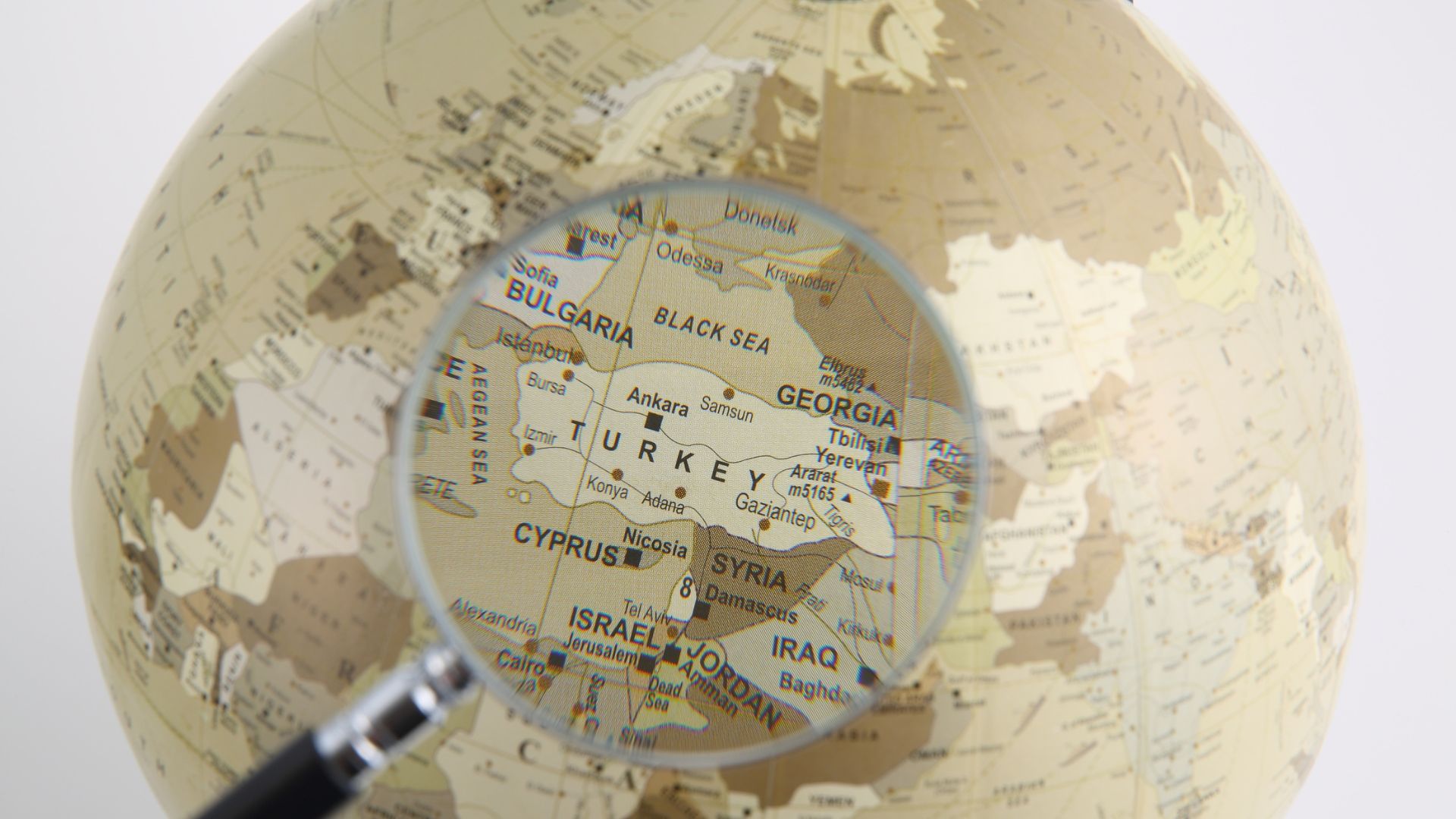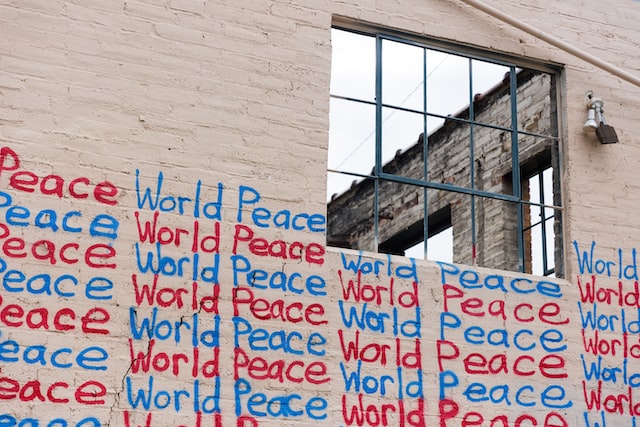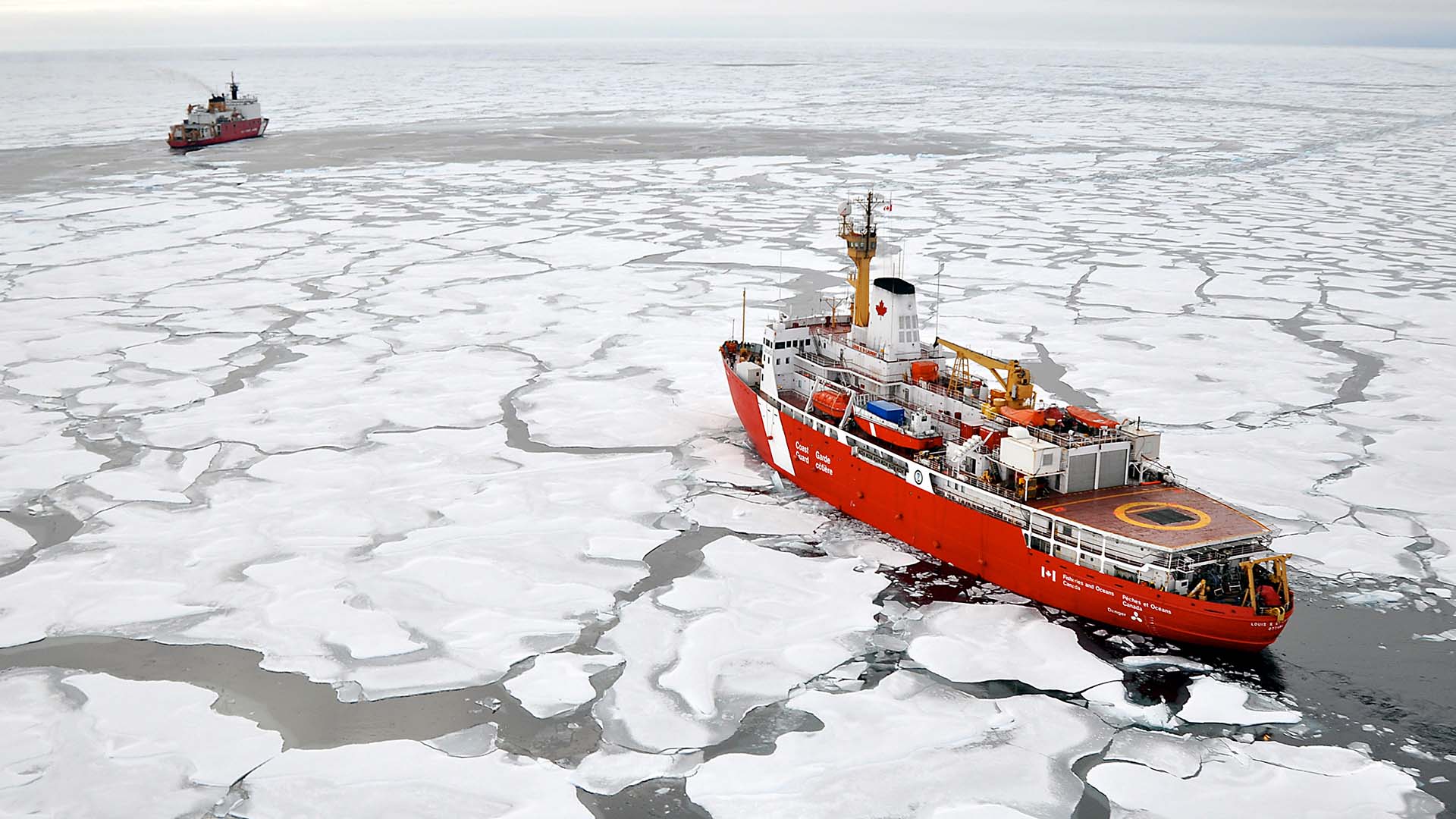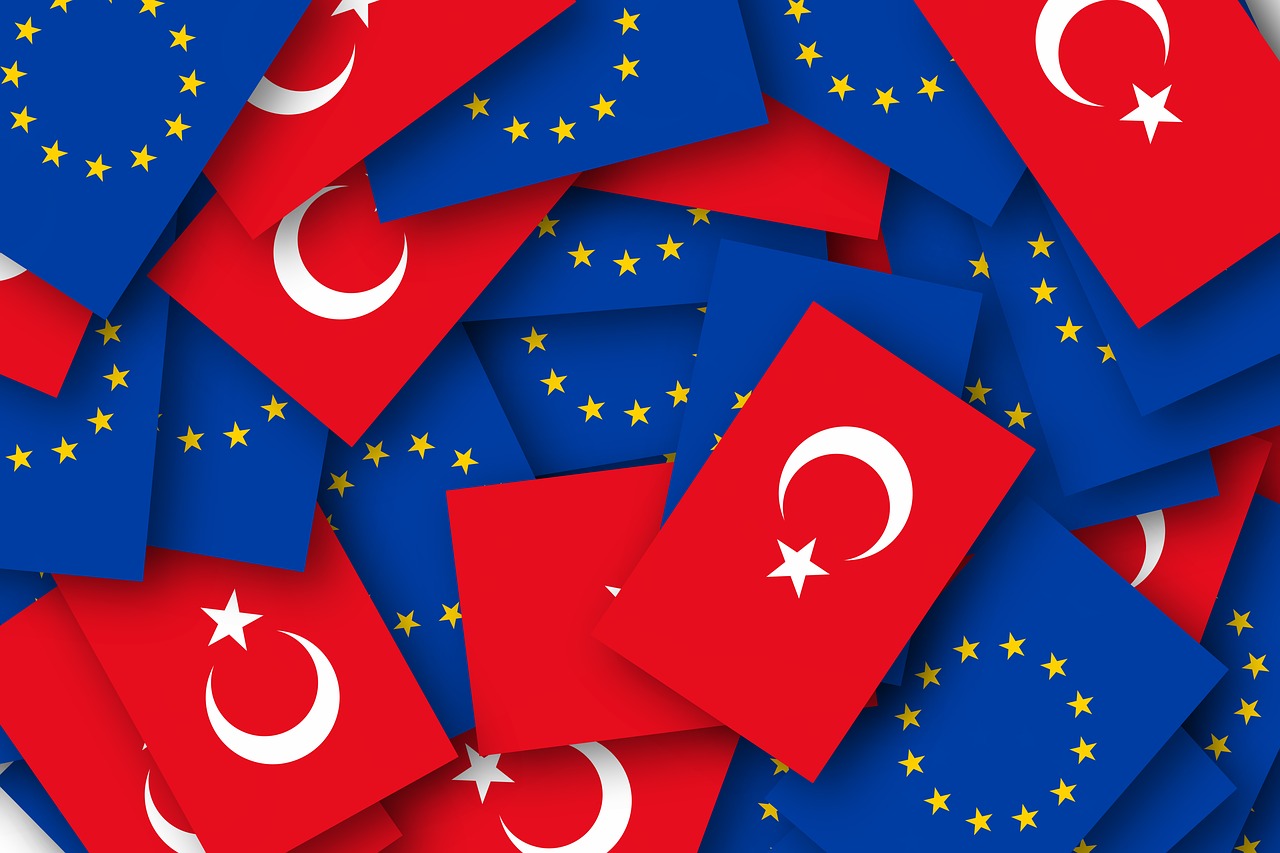From the Mediterranean to the Caspian, a grand geopolitical game unfolds—Turkey, Greece, and global rivals move their pieces in pursuit of influence, energy, and security.
The 21st-century geopolitical chessboard is increasingly maritime. Land borders are no longer the only frontlines of strategic rivalry. Instead, the seas—their depths rich with energy, their waters crossed by trade, their coasts lined with military installations—define who shapes global and regional order.
Few places demonstrate this maritime reality more vividly than the four seas surrounding Turkey: the Mediterranean, the Aegean, the Black Sea, and the Caspian. These waters are not just geographical features—they are theatres of economic ambition, military tension, diplomatic manoeuvring, and historical memory. In this evolving order, both Türkiye and Greece—long-time regional rivals and reluctant partners—find themselves navigating the same turbulent tides and need to work together despite the atmosphere of skepticism and mistrust.
Strategic Waters: Past Echoes, Present Stakes
From the ancient Silk Road that linked the Caspian region and the Mediterranean worlds to the Cold War stand-offs in the Black Sea, these maritime zones have always influenced the fate of empires. Today, they are even more consequential.
The Mediterranean has become a battleground of global ambitions. China is investing heavily in infrastructure, Russia maintains a hardened military presence, and Gulf states export petrodollar influence. Greece, at the southeastern gateway to Europe, stands as a vital node in this theatre. Its ports—especially Piraeus, controlled by China’s COSCO—are now entry points for global trade and symbols of Beijing’s soft power in Europe.
The Aegean, meanwhile, remains a sea of unresolved disputes. Flanked by NATO allies Türkiye and Greece, the region simmers with sovereignty disagreements, airspace violations, and maritime boundary claims. The potential for accidental escalation always looms. Yet, both nations also share energy interests and face common challenges—migration flows, climate risks, and the need for energy diversification.
To the Black Sea, Russia’s occupation of Georgia’s Abkhazia and South Ossetia, annexation of Crimea, and its 2022 invasion of Ukraine have transformed the region into a security hotspot. The militarisation of these waters, disruption of grain routes, and energy insecurity now affect every coastal state, including Türkiye, Bulgaria, Romania, and even Greece, whose naval forces coordinate under NATO’s eastern flank.
Beyond, the Caspian Sea—often overlooked—hosts a quiet scramble for hydrocarbons and logistics influence. Türkiye, by extending pipelines like TANAP and promoting the Middle Corridor, is linking Central Asia to Europe. Greece, though not a direct Caspian actor, is tied to its dynamics through the Southern Gas Corridor and LNG reception terminals such as Revithoussa, which strengthen Europe’s energy resilience.
China’s Maritime Advance: From Piraeus to the Caspian Rim
The Belt and Road Initiative has reimagined sea power as a tool of strategic influence. China’s presence in the Mediterranean is clearest in Greece, where COSCO’s stake in the Port of Piraeus has turned it into Europe’s third busiest container port. Chinese investments also touch Italy, Israel, and increasingly, North Africa, positioning Beijing as a formidable actor in the region.
In the Caspian, Chinese companies have built pipeline routes and invested in Turkmen and Kazakh energy, tightening Beijing’s grip on Eurasian energy flows. Yet this influence comes with risk—debt diplomacy, opaque governance, and growing dependence. Both Türkiye and Greece must manage their exposure carefully, balancing infrastructure needs with sovereignty concerns.
For Ankara, alternatives like the EU’s Global Gateway or the G7’s Partnership for Global Infrastructure and Investment offer a chance to counterbalance Beijing while safeguarding autonomy. Athens, more embedded in the EU system, serves as a bridge for aligning Mediterranean strategies with European standards.
Russia’s Return to the Seas—and Regional Calculus
Russia’s maritime reach spans all four seas. In the Mediterranean, Russia collaborates closely with Egypt, and projects power through mercenaries in Libya. It is a critical partner in OPEC+. In the Black Sea, its aggression against Ukraine has reshaped regional security, disrupted trade corridors, and brought NATO’s eastern strategy to the forefront.
In energy, Gazprom’s pipelines, such as BlueStream and TurkStream, and Rosatom’s Mersin Akkuyu Nuclear Power Plant, bind Türkiye to Russia even as Ankara tries to diversify. Similarly, Greece is both vulnerable to and resilient against Russian disruption due to the Trans-Adriatic Pipeline and LNG routes.
While Türkiye has taken a pragmatic stance vis-à-vis Russia, it also supports Ukraine’s territorial integrity and Azerbaijan against Armenia. Greece, for its part, has deepened defence ties with the US and France, strengthening its deterrence posture and emerging as a key ally in Europe’s southeastern flank. Both countries play crucial, though distinct, roles in balancing (and indeed deterring) Russian ambitions.
NATO’s Role: Mediator or Divider?
The role of NATO in these regions is particularly complex. While the alliance has been a cornerstone of both Türkiye and Greece’s security postures, its influence in the Mediterranean and the Black Sea is increasingly questioned. In the Mediterranean, NATO’s presence is significant but fragmented. NATO often struggles to balance the interests and national priorities of its member states such as Türkiye, Greece, Italy, France. The ongoing friction over maritime rights further complicates NATO’s ability to act as an impartial force for peace.
Türkiye, on the other hand, remains deeply committed to its own bilateral dealings in the Black Sea, preferring to negotiate directly with littoral nations, including Russia. Türkiye has long resisted NATO’s expansion in this space, particularly when it comes to harassing Russia’s naval forces in these strategic waters. Ankara’s interest in preventing Russian dominance is clear but it does not want NATO to be causing any inconvenience for its broader strategic objectives in the Black Sea.
The Mediterranean, however, represents a different challenge. NATO’s role here is pivotal—especially in fostering cooperation on counterterrorism, maritime security, and energy transit protection. Yet, NATO must navigate the competing interests of its members, each with their unique concerns in the region. Türkiye, for instance, views NATO’s presence with cautious optimism, but it also seeks to avoid external actors such as Russia, China, and Iran—especially in light of Türkiye’s increasingly assertive foreign policy and desire for strategic autonomy.
The US, largely absent from the Mediterranean’s core strategic issues, has been increasingly disengaged. Its focus has shifted toward the Indo-Pacific and its own regional priorities. This decoupling from Europe and the Mediterranean has left a vacuum that Türkiye and Greece (and Israel, most recently) are attempting to fill in their own ways—sometimes independently and sometimes in cooperation with each other.
In the absence of a strong American presence, Israel has rapidly become a major actor to reckon with. As Iran’s influence wanes, Israel has capitalized on new alliances, both in the Mediterranean and beyond. Israel’s growing presence in the region—especially in energy, defence, and technology—has cemented its role as a key player. With its sophisticated naval capabilities and strategic alliances with Greece, Egypt, and Cyprus, Israel’s influence is likely to continue rising in the years ahead.
Strategic Autonomy in an Interdependent Sea
Both Türkiye and Greece are asserting new maritime roles. Türkiye, with its contested “Blue Homeland” doctrine, envisions regional influence from the Black Sea to the Red Sea. It has commissioned the TCG Anadolu, its first aircraft carrier, and is developing unmanned naval technologies. Greece, meanwhile, is modernising its navy, acquiring French frigates, Rafale jets, and deepening its defence cooperation within the EU and NATO frameworks.
Regarding energy, if they are commercially viable, Türkiye’s discovery of gas reserves in the Black Sea—estimated at 710 bcm—is a game changer. Greece is betting on LNG, renewables, and becoming an energy transit hub. The Revithoussa terminal and interconnectors with Bulgaria and North Macedonia enhance Greece’s position in the European energy matrix.
Yet, strategic autonomy is not absolute. Both countries must balance ambition with alliances. For Türkiye, this means managing tensions with NATO and the EU while asserting regional leadership. For Greece, it means amplifying European cohesion while preparing for uncertainty in its eastern neighbourhood.
Toward a Maritime Compact for Stability
Despite the current tensions, the region offers immense potential for cooperation. Türkiye and Greece share several common interests, such as energy security, counterterrorism, and managing migration. Their future will depend on their ability to move beyond rivalry and toward shared goals of stability and prosperity.
A Mediterranean Energy and Security Community could serve as a foundation for such cooperation, bringing in other neighbours as well. This initiative could foster greater regional integration in energy, security, and trade. By pooling resources, Türkiye and Greece, along with other regional players, could invest in infrastructure, develop renewable energy projects, and ensure that their energy supply routes are secure from external threats.
Moreover, the integration of Türkiye and Greece into broader European and global economic frameworks will be essential for long-term stability. Strengthening ties with the EU, particularly in trade, energy, and defence, could help both countries navigate the shifting dynamics of global power and ensure that the Mediterranean and Black Sea remain zones of cooperation rather than conflict.
On the energy front, renewable energy projects, particularly offshore wind and solar energy, hold vast potential. Both Türkiye and Greece are strategically positioned to take advantage of these resources. Together, they could lead the region in creating a Green Energy Corridor, jointly backed by the EU, Gulf sovereign funds, and International Financial Institutions, that would provide sustainable power to Europe while decreasing reliance on fossil fuels and foreign energy supplies.
A Mediterranean Green Energy Fund could unlock vast solar and wind potential—estimated at over 500 GW by 2050. Both Türkiye and Greece could become leaders in manufacturing, smart grids, and interconnectivity. Their rivalry could evolve into a race for sustainability.
Moreover, linking the Middle Corridor with southern Mediterranean routes—through ports like Mersin, Piraeus, Haifa, and Constanța—would reduce dependence on the Suez Canal and build a resilient Eurasian trade highway.
The Stakes: Between Leadership and Fragmentation
The convergence of crises—Ukraine, Israel, Azerbaijan-Armenia, energy, climate, migration—demands a new regional mindset. Both Türkiye and Greece are at the epicentre. Their choices, whether toward confrontation or cooperation, will shape not only their own futures but the destiny of the seas they share.
However, it is crucial that the countries around these seas do not allow themselves to be dominated by external powers seeking access to resources, trade, investment, infrastructure, and geopolitical influence. The maritime spheres surrounding these nations should be platforms for cooperative development, not arenas for external hegemony. By fostering regional collaboration rather than competition, these countries can counterbalance the growing influence of powers like China and Russia, ensuring that they are the primary stakeholders in decisions that affect their collective future.
The EU must go beyond its current efforts, which have often proven ineffective to date in managing the complexities of these four sea basins. The EU should step up its role as a facilitator of regional cooperation, promoting common interests in security, economic development, and energy sustainability. Rather than a reactive player, the EU must be an active partner in building frameworks for collaboration, trust, and shared prosperity among Türkiye, Greece, and other coastal nations.
The EU’s current strategy fails to address the region’s fundamental geopolitical realities. It must engage more effectively with the dynamics at play, moving beyond symbolic gestures and taking concrete steps toward fostering genuine regional integration. A stronger, more active EU presence, alongside efforts to reduce external dependencies, will ensure that regional cooperation can thrive.
The Way Forward: Key Recommendations
- Regional Maritime Cooperation: Establish a maritime cooperation framework that includes energy, security, and trade. This could be based on the principles of mutual respect for territorial integrity and sovereignty, with shared goals for sustainable development.
- Joint Energy Initiatives: Türkiye and Greece should prioritize joint investments in renewable energy, particularly in offshore wind and solar power. This would reduce reliance on external energy suppliers and build regional energy resilience.
- Infrastructure Development: Prioritize investment in transport and trade corridors that link the Mediterranean to the Caspian. This will provide alternative routes for global trade, reducing reliance on the Suez Canal and increasing regional connectivity.
- EU Leadership: The European Union must deepen its engagement with the region, offering support for joint economic projects, peace-building initiatives, and regional security. It should also leverage its trade and diplomatic influence to ensure that Türkiye, Greece, and surrounding nations are not at the mercy of external actors like China or Russia.
- Crisis Prevention Mechanisms: Establish new diplomatic channels between Türkiye and Greece to prevent conflicts in the Aegean and Mediterranean, particularly concerning disputed maritime borders. This will be crucial for long-term peace and stability.
The future of the region lies in its ability to turn its geopolitical challenges into opportunities for collaboration. As power in the 21st century increasingly shifts to the seas, Türkiye and Greece must work together—not just for their own benefit, but for the stability of the entire Mediterranean and Black Sea.
In this maritime century, power floats on water. In the seas that connect and divide, the future of the region will be charted not just by ships but by vision, cooperation, and leadership. A shared vision for prosperity, security, and sustainable development can transform the region from a battleground of power into a hub of cooperation. The time has arrived to move beyond rivalry and towards shared prosperity, which would be a win-win proposition for all countries in the region.








